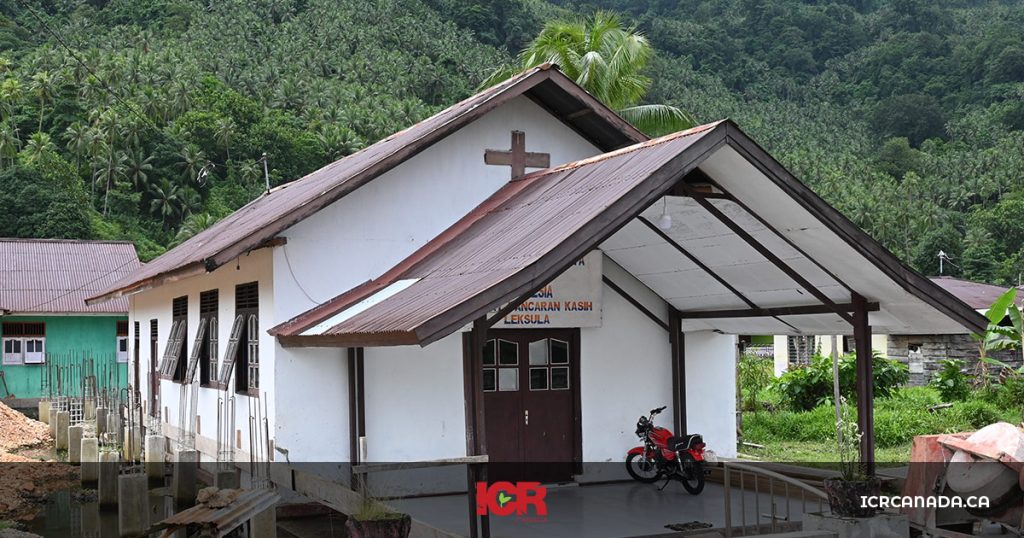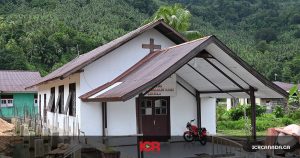Indonesian Muslims Prosecuted for Disrupting Christian Retreat

On June 27, 2025, a violent attack occurred during a Christian youth retreat in Tangkil village, Cidahu District, Sukabumi, West Java, when approximately 200 Muslims stormed a private home used for the event. Shouting slogans such as “Destroy that house,” the mob caused significant property damage and forced the retreat participants to flee. The incident, which took place shortly after Friday mosque prayers, was witnessed by law enforcement and military personnel who reportedly took no immediate action.
Despite an agreement by the Christian victims not to press charges, West Java Governor Dedi Mulyadi has insisted that legal action must proceed. The governor’s intervention led to the arrest of eight suspects and a formal investigation by local authorities.
"This is a serious criminal matter that must be addressed legally," said Governor Mulyadi, vowing to personally oversee the legal proceedings. He emphasized the government's duty to protect its citizens and ensure that law and order are upheld.
The Christian family living in the house—owned by 70-year-old Maria Veronica Nina and managed by Yongki Djien—were long-term residents of the area. Governor Mulyadi reiterated their legal standing and right to safety in their own community.
Government Support and Psychological Aid
After visiting the damaged home with the affected family, Governor Mulyadi acknowledged the psychological impact the attack had on the victims, particularly the children.
“The children must recover and not be psychologically depressed. This family can be harmonious again with their neighbors,” said Mulyadi.
To that end, the provincial government has arranged for a psychological support team to assist the family. Currently, Yongki Djien and his nine relatives are staying in a hotel in Sukabumi City for their safety.
The governor also compensated the family with 100 million Indonesian rupiah (approximately $6,250 USD). In a gesture of reconciliation and goodwill, the family announced that the funds would be used to improve public facilities and support local mosques in the area.
Tensions Between Legal Action and Restorative Justice
In contrast to the strong stance taken by the West Java governor, the Indonesian Ministry of Law and Human Rights has expressed a more cautious approach, advocating for restorative justice rather than prolonged legal detention.
Thomas Harming Suwarta, a special staff member at the ministry, emphasized that the defendants should be treated fairly and professionally. He called for their release from custody while acknowledging the ongoing legal process.
“There are many efforts and methods to seek justice, including restorative justice mediation efforts,” Thomas stated. He indicated that the vandalism may have stemmed from a “misunderstanding.”
 Criminal law expert Djisman Samosir of Parahyangan Catholic University supported the concept of restorative justice but stressed that such measures must be mutual.
Criminal law expert Djisman Samosir of Parahyangan Catholic University supported the concept of restorative justice but stressed that such measures must be mutual.
“Restorative justice has its norms. There must be an agreement between the perpetrator and the victim,” he said. “The police, prosecutors, and judges are only mediators.”
Police Chief Samian of Sukabumi confirmed that any request for suspension of detention would be processed according to legal procedures. However, Governor Mulyadi has maintained that prosecution must continue to preserve peace and order in the province.
Widespread Damage and Trauma Documented
The extent of the destruction is well documented through both eyewitness accounts and circulating videos. The mob damaged windows, toilets, a gazebo, garden, fences, a large cross, and even a motorbike. In one video, a man is seen tearing down a wooden cross and using it to smash a window. Others show the attackers using chairs and tools to destroy property, while retreat participants scramble to flee.
One female witness described the chaos as it unfolded during a group activity.
“When we were having a game session, we suddenly heard a crowd coming,” she recounted. “They were banging, shouting... Stones were thrown everywhere, and we were told to leave the villa immediately.”
She explained that the children had no time to gather their belongings and were rushed into vehicles that were subsequently pelted with stones and scratched. The traumatic experience left many of the young participants deeply shaken.
West Java Police Chief Inspector General Rudy Setiawan reported that seven individuals had been identified as perpetrators involved in looting and vandalism. The investigation continues under close scrutiny by both the regional government and the public.
Broader Context: Rising Religious Tensions in Indonesia
This incident highlights ongoing challenges in Indonesia, where religious minorities—particularly Christians involved in evangelistic work—face increasing hostility in some regions. According to advocacy group Open Doors, the country has seen a rise in Islamic conservatism, putting minority communities at risk of discrimination and violence.
Despite Indonesia’s official recognition of religious freedom, tensions remain in regions where conservative Islamic sentiment is dominant. Churches operating in these areas often experience resistance, restrictions, or outright attacks.
Governor Mulyadi’s firm response and efforts to mediate peace between communities have been praised as steps toward restoring balance. However, the differing views between the regional and national government bodies suggest ongoing debates over the best approach to religious conflict in Indonesia.
The hope remains that the victims receive justice while both communities work toward healing and long-term coexistence.
The prosecution of the individuals responsible for the June 27 attack sends a strong message about the importance of religious tolerance and the rule of law in Indonesia. While government officials navigate the complex balance between legal accountability and restorative justice, the core issue remains clear: religious violence, regardless of the context, cannot be tolerated in a pluralistic society.
Ensuring justice for victims while promoting harmony is a test of Indonesia’s democratic institutions and its commitment to protecting minority rights in a changing social and religious landscape.
